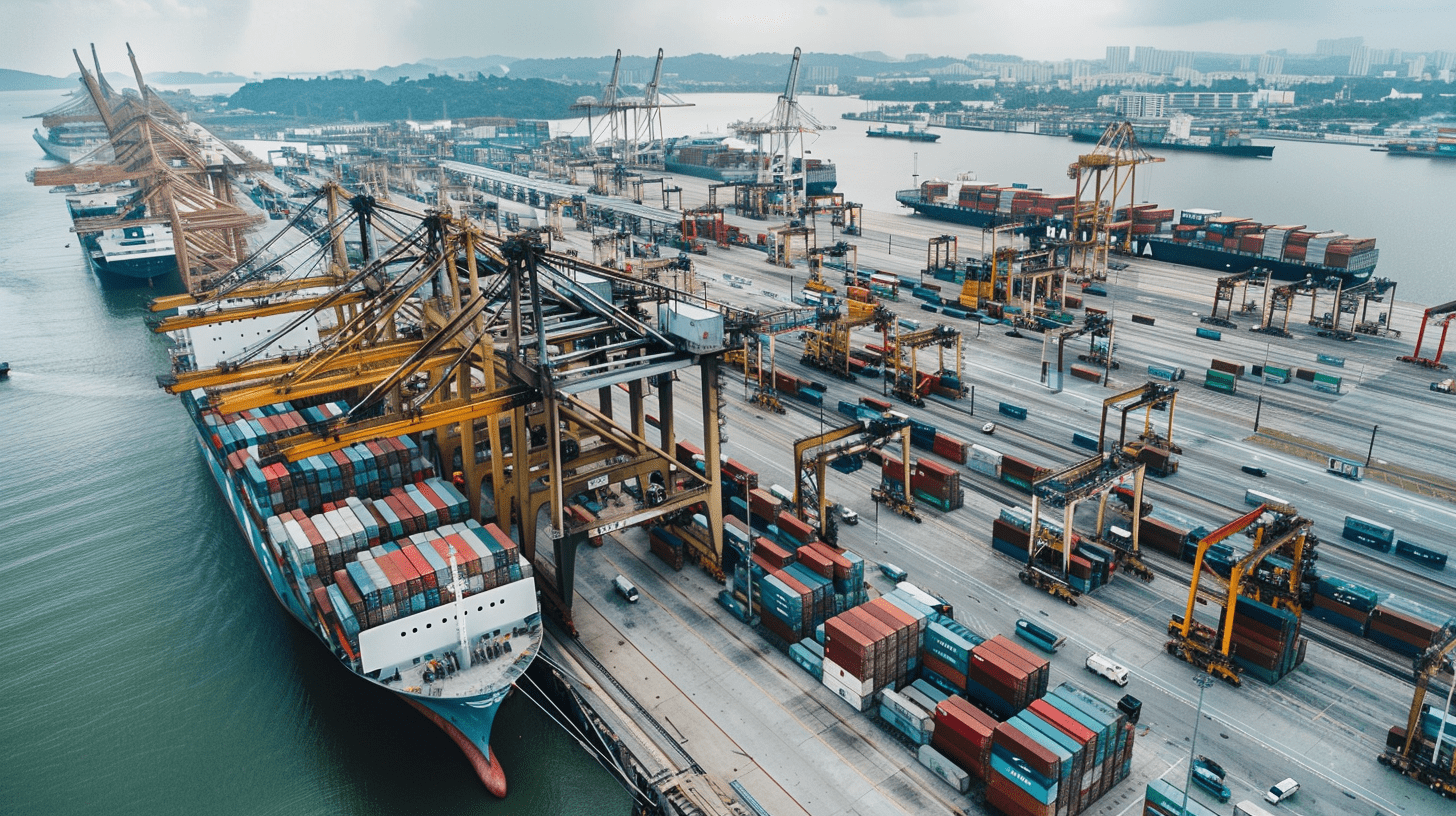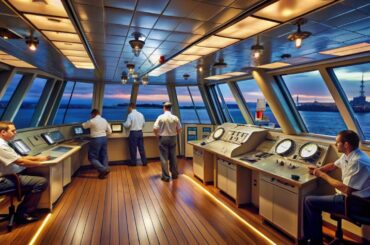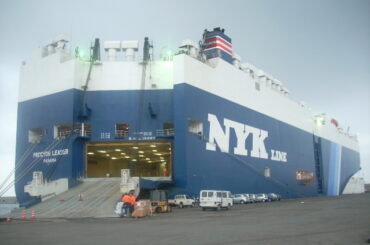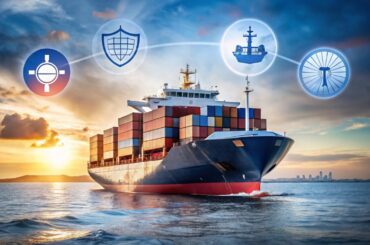Deep water ports are essential components of the global supply chain, serving as gateways for massive cargo ships to transport goods across oceans. These specialized ports are pivotal in facilitating international trade, but have you ever wondered about the intricate operations that take place within these maritime hubs? Let’s explore the inner workings of deep water ports, uncovering the vital role they play in connecting economies and ensuring the smooth flow of goods on a massive scale.
Importance of Deep Water Ports
Deep Water Ports play an essential role in facilitating international trade and commerce. Their strategic location near major waterways allows for efficient transportation of goods.
Considerations for the environment are paramount, with ports implementing measures to minimize ecological impact. Shipping efficiency is critical, and deep water ports accommodate large vessels, reducing transit time and costs.
Trade facilitation is another key aspect, with ports serving as hubs for imports and exports. Security measures are stringent to safeguard against potential threats, such as terrorism or smuggling.
Technological advancements have further enhanced port operations, with automated systems improving productivity and accuracy.
Characteristics of Deep Water Ports
Characterized by their ability to accommodate large vessels and provide efficient access to major waterways, deep water ports exhibit key features that are integral to international trade and maritime operations.
Operational efficiency is an essential characteristic of deep water ports, as they’re designed to handle large volumes of cargo swiftly and seamlessly. These ports are equipped with advanced loading and unloading facilities, extensive storage areas, and streamlined logistics processes to guarantee smooth operations.
Environmental considerations also play a significant role in shaping the characteristics of deep water ports. Measures such as implementing eco-friendly technologies, managing waste disposal responsibly, and minimizing air and water pollution are vital aspects of port operations.
Deep water ports often adhere to strict environmental regulations to mitigate their impact on marine ecosystems and surrounding communities. By incorporating sustainable practices, these ports aim to balance economic growth with environmental stewardship, promoting a harmonious coexistence with the natural world.
To summarize, the operational efficiency and environmental consciousness of deep water ports are key characteristics that define their significance in global trade networks.
Infrastructure at Deep Water Ports
The infrastructure at deep water ports comprises a complex network of facilities and systems designed to facilitate the efficient movement of goods and vessels.
Loading facilities are vital components, encompassing docks, cranes, and storage areas where cargo is transferred between ships and land transportation.
Navigational aids such as lighthouses, buoys, and GPS systems guarantee safe passage for vessels entering and exiting the port.
Environmental considerations are paramount, with ports implementing measures to minimize ecological impact, such as waste management and pollution control.
Security measures are in place to safeguard against unauthorized access and potential threats to the port and its operations.
Maintenance practices are essential to keep the facilities in peak working condition, involving regular inspections, repairs, and upgrades.
Cargo handling is streamlined through specialized equipment and trained personnel to efficiently load and unload various types of goods, enhancing the port’s operational efficiency.
Economic Impact of Deep Water Ports
With a significant contribution to regional economies, deep water ports play a pivotal role in fostering trade and commerce.
These ports are essential for trade facilitation and efficient maritime logistics. The economic impact of deep water ports is substantial, influencing various sectors and driving growth.
Here are some key points highlighting the economic significance of deep water ports:
- Job Creation: Deep water ports create numerous job opportunities directly and indirectly, supporting local communities.
- Revenue Generation: Ports generate significant revenue through handling fees, storage charges, and other services, contributing to the economy.
- Supply Chain Efficiency: Efficient maritime logistics at deep water ports streamline supply chains, reducing costs and enhancing competitiveness.
- Trade Expansion: Ports serve as gateways for imports and exports, promoting international trade and economic growth.
- Infrastructure Development: Investments in port infrastructure spur development in surrounding areas, attracting businesses and fostering economic prosperity.
Global Significance of Deep Water Ports
From a global perspective, deep water ports serve as essential nodes in the intricate web of international trade and logistics.
These ports are strategically located along major maritime trade routes, facilitating the movement of goods and materials between countries and continents. Their deep drafts allow large vessels to dock, enabling efficient handling of bulk cargo and containerized shipments.
Deep water ports play a critical role in connecting global supply chains, supporting industries such as manufacturing, agriculture, and energy.
The strategic locations of these ports make them important hubs for transshipment and distribution, enhancing the speed and cost-effectiveness of global trade. By serving as key entry and exit points for goods, deep water ports contribute greatly to the growth of economies worldwide.
Moreover, these ports are instrumental in promoting international cooperation and fostering diplomatic relations between nations.
The efficient operation of deep water ports is imperative for maintaining the smooth flow of goods and ensuring the stability of global trade networks.
Fundamentally, deep water ports are indispensable components of the interconnected world economy, driving prosperity and development across borders.
Frequently Asked Questions
What Are the Environmental Impacts of Deep Water Ports?
When considering the environmental impacts of deep water ports, sediment management is vital. Dredging for port development can disrupt marine biodiversity, impacting habitats and species. Monitoring and implementing proper sediment control measures are essential for minimizing ecological disturbances.
How Do Deep Water Ports Handle Security and Safety Measures?
When it comes to security and safety at deep-water ports, stringent protocols are in place. Personnel undergo extensive safety training to handle emergencies. Surveillance systems, access control, and emergency response plans are key components ensuring port operations run smoothly.
Are There Regulations in Place for Deep Water Port Operations?
In managing port operations, regulatory compliance is essential. Regulations govern various aspects like environmental protection, vessel safety, and security protocols. Deep water ports must adhere to these rules to guarantee safe and efficient maritime activities.
What Role Do Deep Water Ports Play in National Defense?
In national defense, deep water ports are essential for military logistics. They provide strategic access for naval vessels, allowing rapid deployment of forces and equipment. These ports serve as significant hubs for maritime operations, enhancing national security.
How Do Deep Water Ports Adapt to Changing Shipping Trends?
To adapt to changing shipping trends, deep water ports invest in modernizing infrastructure, incorporating advanced shipping technology like automated systems. This enhances efficiency and capacity, ensuring economic impact by attracting more vessels and cargo, optimizing operations.







